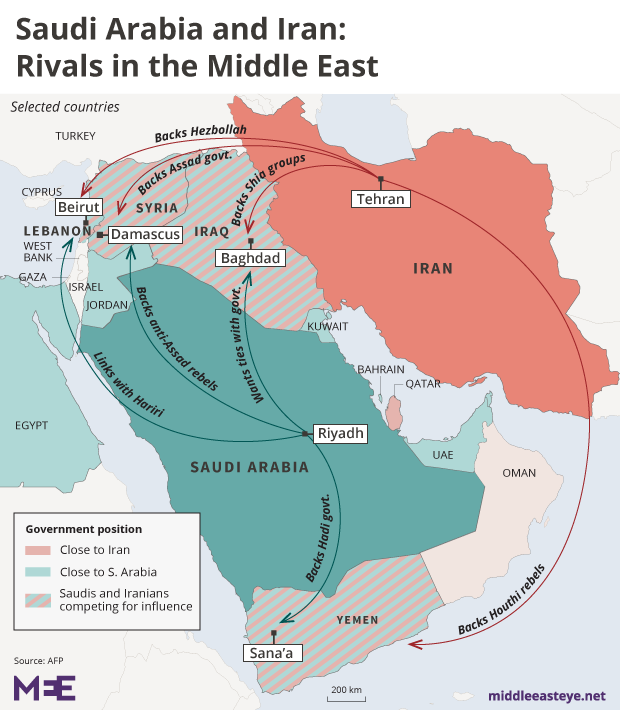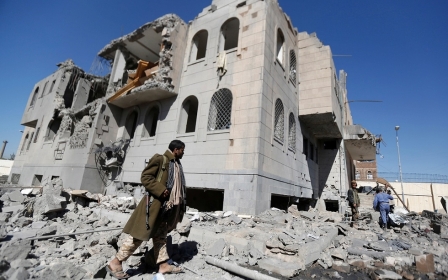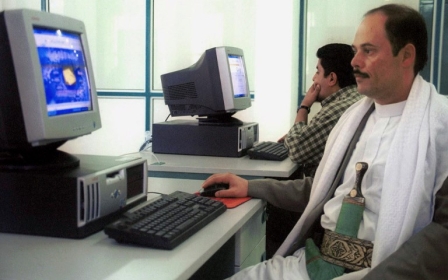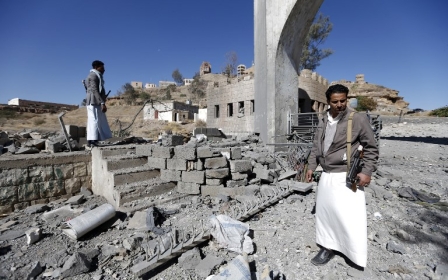Saudi Arabia intercepts Yemen rebel missile over Riyadh
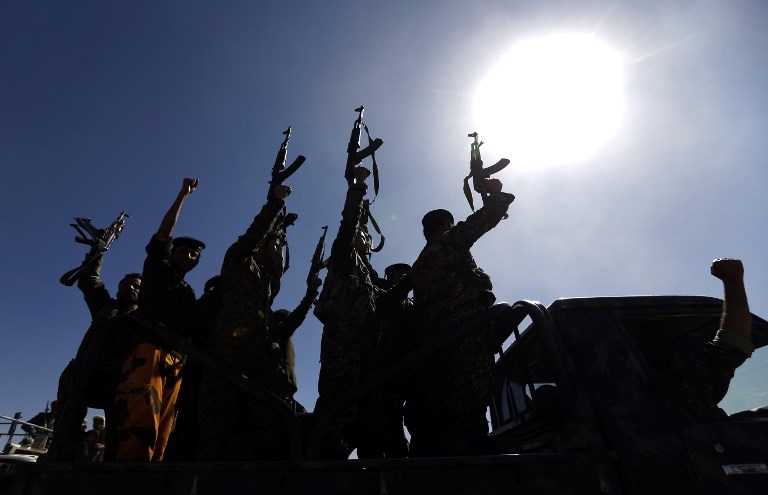
Saudi Arabia said it intercepted a Yemeni rebel missile over Riyadh on Tuesday, as the rebels said the target was Yamamah palace, the official residence of King Salman.
An AFP correspondent heard a loud explosion at 10.50 GMT, shortly before the scheduled unveiling of the Saudi budget, which is usually announced from the Yamamah palace by the king.
"Ballistic missile intercepted over Riyadh," the Saudi-led coalition battling Yemen's Houthi rebels said in a statement.
Witnesses in the Saudi capital said they had heard an explosion and posted videos on social media showing a cloud of smoke in the air.
The Houthi movement's al-Masirah TV reported that its fighters had fired a Burkan-2 missile at the Yamamah palace.
On 30 November, a ballistic missile fired by Yemen's armed Houthi group at Saudi Arabia was shot down near the southwestern city of Khamis Mushait.
Tuesday's was the third ballistic missile fired from Yemen, after an earlier rocket was brought down near King Khaled airport on the northern outskirts of the capital on 4 November.
A Saudi-led coalition fighting the Houthis in Yemen has closed air, land and sea access in a move it says is meant to stop a flow of Iranian arms to the Houthis, who control much of northern Yemen.
The blockade has cut food imports to seven million people on the brink of famine.
Saudi Arabia and its allies, who receive logistical and intelligence help from the US, have accused Iran of supplying the missile to the rebels, a charge Tehran strongly denies.
The coalition has launched thousands of air strikes against the Houthis who still control much of Yemen's main population centres including the capital Sanaa and the strategic port city of Hodeidah.
The conflict has led to one of the world’s worst humanitarian crises and killed at least 10,000 people.
On Thursday, US ambassador to the United Nations Nikki Haley presented what she called "undeniable" evidence that last month's missile was "made in Iran".
But her comments went beyond the findings of a UN investigation which reached no firm conclusion on whether the missile came from an Iranian supplier, saying only that it had a "common origin" to some Iranian designs.
New MEE newsletter: Jerusalem Dispatch
Sign up to get the latest insights and analysis on Israel-Palestine, alongside Turkey Unpacked and other MEE newsletters
Middle East Eye delivers independent and unrivalled coverage and analysis of the Middle East, North Africa and beyond. To learn more about republishing this content and the associated fees, please fill out this form. More about MEE can be found here.


